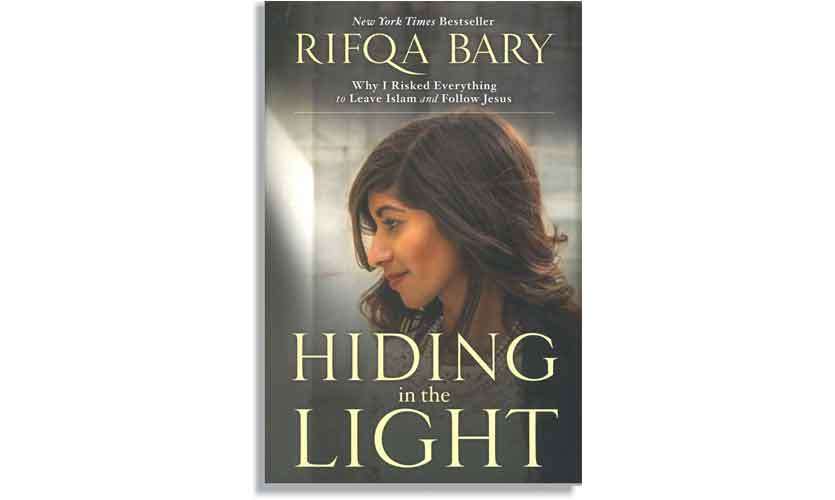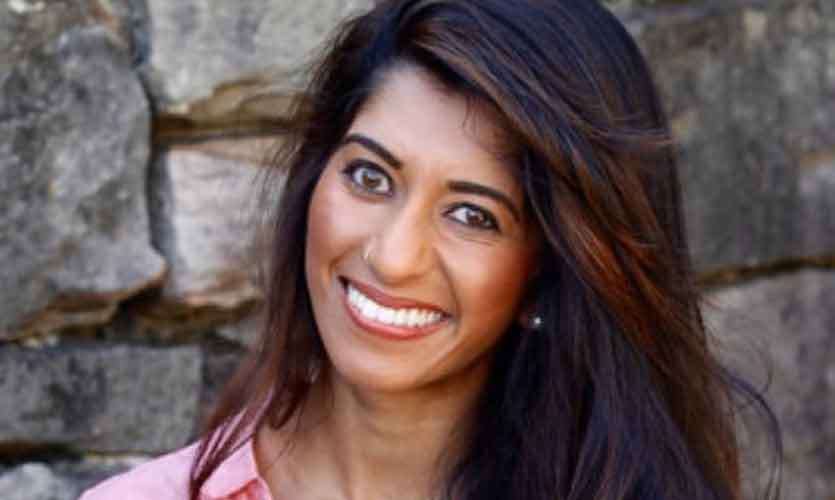
Jun 18 2019.
views 1416Sri Lankan-born Fathima Rifqa Bary made headlines back in 2009 when she appeared on US television and described herself as an intended victim of an honour killing. Brought up in a strict environment, Rifqa says she had a difficult childhood trying to abide by the laws of her own faith, Islam. Although originally from Sri Lanka, the family shifted to the US to seek medical care when her older brother threw a toy plane at her and Rifqa was blinded in her right eye. She alleged that her father was abusive and her life was filled with nothing but constant fear. At 13, Rifqa found Christianity as she believed it to be a faith that gave her freedom and hope. But converting to another faith, she says, is a disgrace according to the Islamic faith and out of fear, she ran away from home at the tender age of 16.
Her story made the news for more than one reason. She ran away from her home in Ohio, and left to Orlando, a thousand miles away, claiming her life was in danger as she has converted to Christianity, a claim her parents have denied. No such evidence was ever found either.
There were also questions over if the Christian evangelical family who she met online and knew only through Facebook, took her in broke the law as she was 16 and had no parental consent, to keep her longer than what was allowed under Florida law. Some questioned if it was a teenager growing up in between two cultures clashing that made Rifqa believe she was in danger. It was reported that at the time her father had said that she could follow any religion she wished as long as she came back home.
She was then taken into state custody by the child welfare authorities later while a separate investigation was conducted. There was no evidence to prove that she had an abusive father and photos of her dad holding a framed photo of Rifqa in a cheerleader outfit had many questioning if he was as conservative as claimed. The case became a topic of debate along religious lines. When she turned 18, she was granted residency in the US, while at 23, she was granted US citizenship. With a degree in Philosophy, she is currently pursuing a law degree.
She penned her life story in her debut memoir ‘Hiding in the Light: Why I Risked Everything to Leave Islam and Follow Jesus’ – a book about her upbringing, her experience with the judicial system and battle with uterine cancer. In an exclusive interview with the Daily Mirror Life, Bary shared the ups and downs she experienced in her life, how changing her faith gave her the courage to live and why all religions should only spread love.
Her controversial story and custody case was the topic of many conversations and debate. Here the author of 'Hiding In The Light' speaks to Life.
How has the response been for your debut book?
The response has been amazing. The book has gone all over the world, but what excites me the most are the endless messages I receive on social media of women who are inspired and have hope for freedom as a result of my experiences.

How was it like growing up?
This is a difficult question to answer because, despite everything that has happened, I love my family. Not a day goes by where I do not think of my family or miss them after being separated from them for nearly 10 years.
Every Muslim family and home is going to be different, but mine was filled with constant fear. My dad treated my mother and I like owned property instead of human beings. I feared my father and did not grow up in an environment of love and safety.
Instead, I was raised in oppression and silence. My voice, fears, desires, hopes, dreams did not matter. Duty and obligation were the only things that mattered. My duty was to follow Islam without asking questions and to one day marry a Muslim man and have his children. Living in a Muslim home, I was taught I had no value or worth outside of being owned by my father or one day my Muslim husband.

Therefore, when a Christian friend presented the idea that the Creator of the universe made me with a purpose and loved me unconditionally, it changed me. For the first time in my life, I was offered hope and freedom. I am pained over losing my family over faith, but I know I am following the truth and have more freedom, purpose, and joy as a Christian than I ever could have imaged.
Did you have friends who went through similar experiences like yours?
I did have Muslim friends, but I was unique because I disobeyed by questioning Islam. My other friends were perhaps afraid to do so.
In addition, my friend’s stories varied in their experiences. Some of my friends families were not as religious and others were even more strict than mine. So, yes, I did have friends who went through similar experiences, but did not speak out about them.
When you knew you were going to take this risky step in your life, what sort of challenges did you have to silently overcome?
I was 16 years old when I left home to find physical safety from my family due to my conversion to Christianity. In the process, I struggled with God’s goodness. I did not understand why I was suffering.
Yet, looking back, my sorrows have been a key factor in shaping me. The trials I have faced have deepened my faith, given me compassion, and taught me my joy is not dependent on circumstances.
Although you say you went through a lot at home, there was no evidence to prove it. How did you feel at that moment?
I felt very lonely. To emotionally cope with the trauma, I wrote my experiences in a journal. It was difficult being in a position where I was powerless to do anything, but writing my experiences helped me deal with the trauma.
After the incident, you had much to deal with the American legal system and the foster care system.
I had incredible attorneys who gave all their intellect and resources to give me the best representation possible. These heroes in the courtroom changed my life. However, there were difficulties because like any system that functions with a lot of people and technicalities, there was room for major mistakes. I would be in a much different place if it were not for my attorneys who did everything they could to give me physical freedom.
In what ways would this issue be different if you were in Sri Lanka?
In Sri Lanka, Christianity is a minority faith. Coming from a strong Muslim upbringing, I would not have had an avenue to hear the gospel. Even if I wanted to leave, I am not sure if I would have the network with churches or a Christian community to aid me in physically leaving my family.
Have you had a chance to talk to your family after the incident?
I have not spoken with my parents since I left home when I was 16. It has been 10 years since I last saw my family and not a day goes by where I do not miss them or think of them. I will never regret the decision I made, but it has had painful consequences like losing a relationship with my family.
You decided to change your faith at a very young age. Hadn’t you made that decision, where do you see yourself today?
I was contemplating suicide when I was 12. It is very likely that I would not be here to answer this question if I had not chosen to follow Christ.
I wanted to take my own life. However, committing my life to Christ drastically changed everything. In the process of studying Christianity and reading the Bible, I realised there was a God who loved me unconditionally and commanded a life completely surrendered to His perfect will and commands.
As I followed Christ, my heart changed. For example, I started praying for those who hurt me as the Bible commands. The more I prayed for my family, the more compassion and love I felt towards them. Please understand, the pain physically and emotionally was real, but no longer was I controlled by anger and bitterness.
I’m sure you would have seen what Sri Lanka went through recently as a result of extremism.
My Lord and Saviour Jesus Christ paid the price for my sin by the greatest act of love that anyone has ever done, enduring the torture of the Cross and God's wrath. Because He loved me, I can and should love others, including those who might consider themselves my enemies. Part of that love is that I should not demonise large groups of people for the actions of a few.
I hope that those who believe their religion sanctions violence would repent of that belief and I hope that others will not attack innocent Muslim men and women out of fear. I know many Muslims look at the attacks with horror and it would be wrong and unjust for them to be mistreated. We cannot fight violence by inciting violence. Love is what will help the nation become stronger and redeem itself from the ashes, not more violence.
Regardless of religion, someone was impacted by the horror of this past Easter. Someone lost a loved one or watched another grieve. I cannot imagine what these beloved men, women, and children are going through. Your brothers and sisters all over the world are praying for you and weeping with you. May God wipe your tears and give you the peace and comfort only He can give.
0 Comments